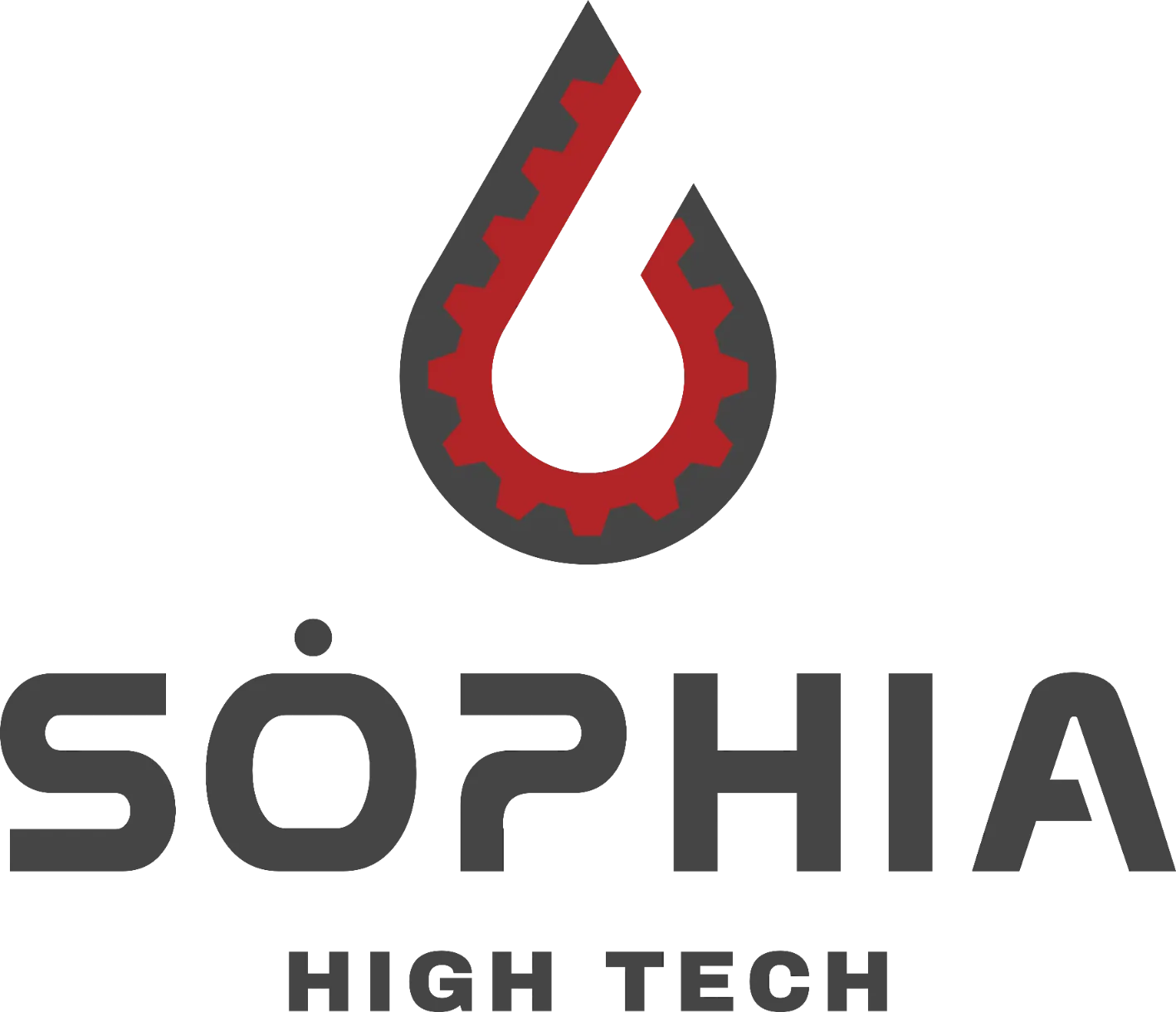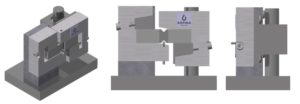
This fixtures has been designed for in-plane or interlaminar shear testing of composite materials. The V-Notched Beam Method, better known as Iosipescu Shear Method, was standardized into ASTM D5379 in 1993. For this test method V-notches specimen design is used in order to create a localized and approximate uniform shear stress zone between the notches. Also, a ±45° two-element strain gauge is often used to directly verify the shear strains applied. The shear stress is introduced via edge-wise clamping of the specimen. ASTM D5379 method has had good test results during the years, particularly for unidirectional and 0/90 cross-ply laminates.
The general purpose is the assessment of cutting properties of composite materials reinforced with high modulus fibers. The composite materials are limited to continuous or discontinuous fibers and to composite fiber reinforced materials in the following forms:
- Laminates composed only of unidirectional fibrous laminae, with the fiber direction oriented either parallel or perpendicular to the loading axis.
- Laminates composed only of woven fabric filamentary laminae with the warp direction oriented either parallel or perpendicular to the loading axis.
- Laminates composed only of unidirectional fibrous laminae, containing equal numbers of plies oriented at 0 and 90° in a balanced and symmetric stacking sequence, with the 0° direction oriented either parallel or perpendicular to the loading axis.
- Short-fiber-reinforced composites with a majority of the fibers being randomly distributed.
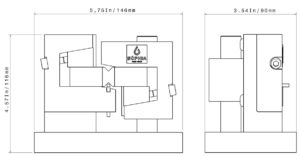
| Test Standard | ASTM D 5379 – D 5379M / no ISO equivalent |
| Maximum Load | 45 kN |
| Temperature Range | from -152 °C to 320 °C |
| Specimen Thickness | 7.6-13.8 mm |
| Specimen Width | 12 mm |
| Specimen Length | 76.2 mm |
| Mass | 3.40 kg |
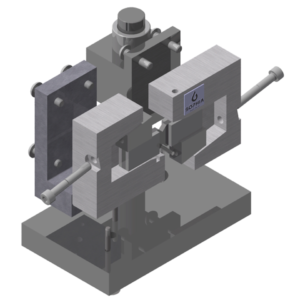
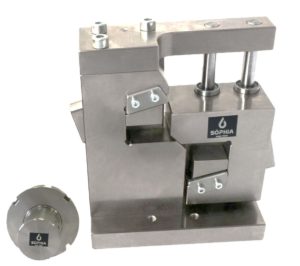
Additional Information:
- This shear test concept was originally developed with no reference to fiber direction for use on isotropic materials such as metals or ceramics.
- This standard does not purport to address all of the safety concerns, if any, associated with its use. It is the responsibility of the user of this standard to establish appropriate safety and health practices and determine the applicability of regulatory limitations prior to use.
